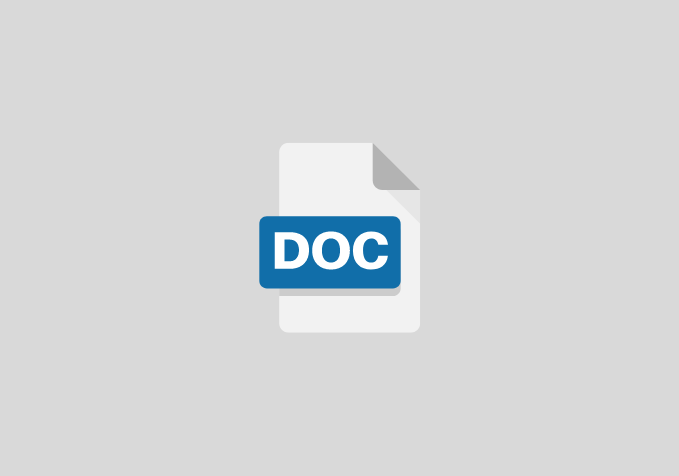Impact of Port Infrastructure on Port Efficiency
CHAPTER ONE
Objectives of the Study
The main objective of this study will to examine the Impact of Port Infrastructure on Port efficiency. Specifically, the following objectives will guide the study.
- To examine the impact of improved port infrastructure on Port efficiency
- To identify and assess the effects of bad port infrastructure in Port efficiency.
- To investigate the major category of port infrastructure.
CHAPTER TWO
INTRODUCTION
Background of the study
In 1776, Adams Smith noted that “A business working in a country town without links to the outside world can never achieve high levels of efficiency because its small market will limit the degree of specialization”. Because shipping is one of the cheapest and efficient modes of transportation over long distances, it has since the ancient times been at the forefront of opening up of the world, and thus a major driver of the process of globalization.
A consideration of Nigeria’s large coastal water and seaports (predominantly in the Southern region of the country) reveals that the maritime sector has contributed substantially to the economic development of the country. It is not surprising that a large volume of the country’s international trade is in one way or the other connected to the maritime sector; for instance, the distribution of the crude oil and related products from the various oil wells in the country is distributed to the international buyers through the various seaports and maritime routes of the country. This perhaps explains why Ndikom (2006) views a port as a gateway to the nation’s economy, with shipping services being a primary logistic service of critical importance. This impact is not peculiar to Nigeria as there are suggestions of similar impacts in other countries. For instance, the observation by Trujillo (2005) that there are 2,814 international ports catering for freight traffic in the world is an indication of the level of business activities associated with the maritime sector across the world.
There is a notion that because ports serve as vital links in the trading chain (Chin and Tongzon, 1998), a greater participation of the private sector in both the ownership and operation of container ports could not only enhance the operational efficiency of these ports (Tongzon and Heng, 2005), but also the economic wellbeing of the entire country. It is about eight years that the Nigerian port system was concessioned to private investors; and there are observations that this has caused tremendous improvement in port operations culminating in high level of efficiency in the ports. Anagor (2014) notes the transfer of port operations to private organizations has resulted in high level of improvement, with substantial investments in terminal infrastructure and cargo handling equipment, increased cargo throughput (which has grown by about 250% in most terminals over the past eight years), leading to a restoration of importers’ confidence to doing business in Nigerian ports. Consequently, this research will examines “The Impact of Port Infrastructure on Port efficiency (A Case Study of the Lagos Port Complex)
CHAPTER THREE
RESEARCH METHODOLOGY
RESEARCH DESIGN
Research designs are perceived to be an overall strategy adopted by the researcher whereby different components of the study are integrated in a logical manner to effectively address a research problem. In this study, the researcher will employ the survey research design. This will be due to the nature of the study whereby the opinion and views of people are sampled. According to Singleton & Straits, (2009), Survey research can use quantitative research strategies (e.g., using questionnaires with numerically rated items), qualitative research strategies (e.g., using open-ended questions), or both strategies (i.e., mixed methods). As it is often used to describe and explore human behaviour, surveys are therefore frequently used in social and psychological research.
POPULATION OF THE STUDY
According to Udoyen (2019), a study population is a group of elements or individuals as the case may be, who share similar characteristics. These similar features can include location, gender, age, sex or specific interest. The emphasis on study population is that it constitute of individuals or elements that are homogeneous in description.
This study will be carried out to Impact of Port Infrastructure on Port efficiency. The Apapa Port Complex will form the population of the study.
CHAPTER FOUR
RELIABILITY OF THE STUDY
The reliability of the research instrument will be determined. The Pearson Correlation Coefficient will be used to determine the reliability of the instrument. A co-efficient value of 0.68 will be gotten which will indicate that the research instrument will be relatively reliable. According to (Taber, 2017) the range of a reasonable reliability is between 0.67 and 0.87.
ETHICAL CONSIDERATION
The study was approved by the Project Committee of the Department. Informed consent was obtained from all study participants before they were enrolled in the study. Permission was sought from the relevant authorities to carry out the study. Date to visit the place of study for questionnaire distribution was put in place in advance.
CHAPTER FIVE
References
- Alfred, T.M. Sea Lines under Strain. 1999 [cited 2014 20 February]; Available from: http://www.mima.gov.my/mima/wp- content/uploads/sealinesunderstrain.pdf.
- Ndikom, O., The essentials of the Port Reforms: The Nigerian Experience. 2004, Lagos: Bumico Publishers.
- Bousquet, F. and A. Fayard. Road Infrastructure concession practice in Europe: a report based on document on analysis of highway concessions in Europe. 2001 [cited 2015 15 January]; Available from: www.rru.worldbank.org/documents/toolkits/highways/pdf/25.pd.
- Federal Government of Nigeria, Infrastructure Concession Regulatory Commssion Act, 2005. 2005: Nigeria.
- Oghojafor, B.E., O. Kuye, and G. Alaneme, Concession as a Strategic Tool for Ports Efficiency: An Assessment of the Nigerian Ports. American Journal of Business and Management, 2012. 1(4): p. 214-222.
- Awam, I., Analysis of the Impact of Concession on Port Operations: a Focus on Nigerian Seaports, in Transport Management Technology. 2014, Federal University of Technology, Owerri. : Owerri.


